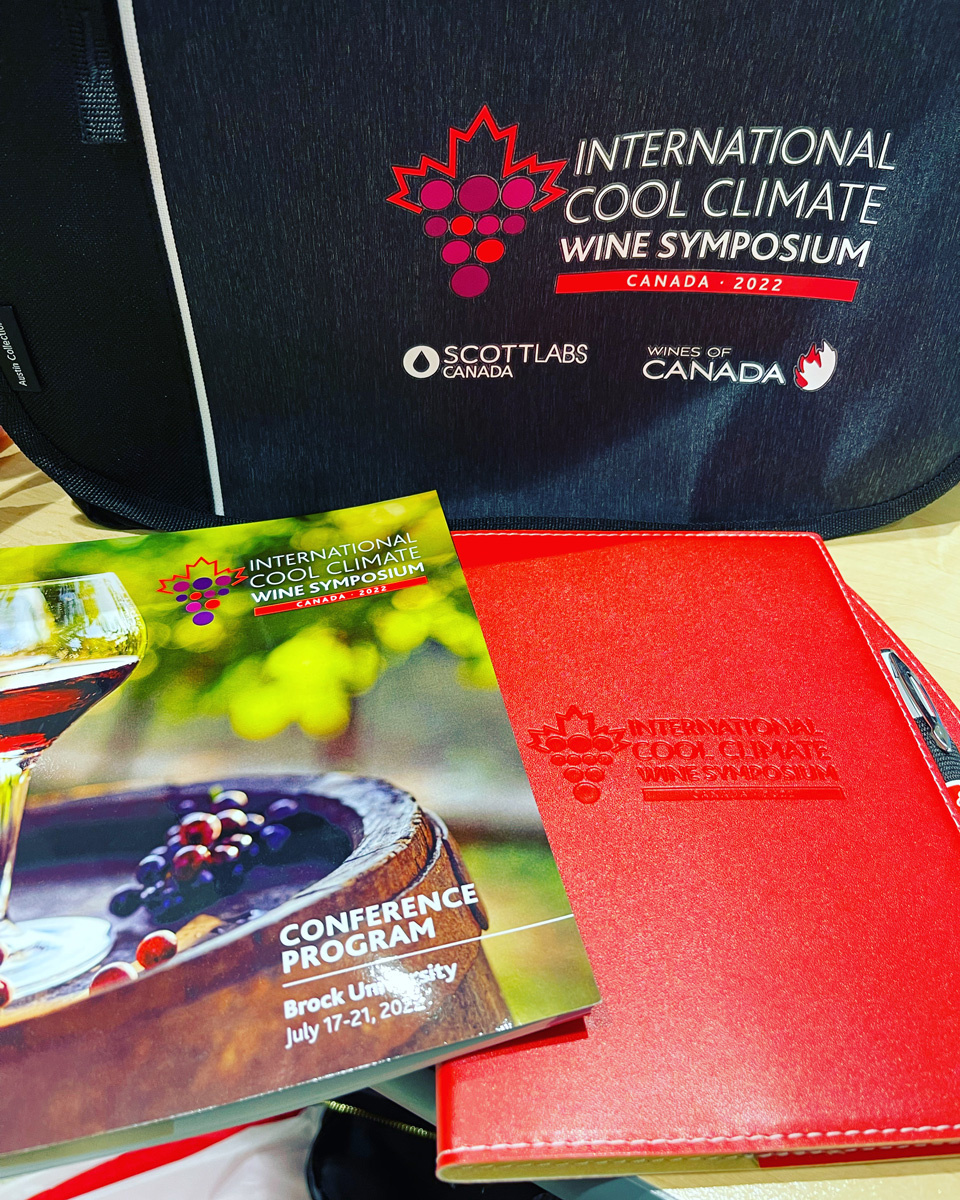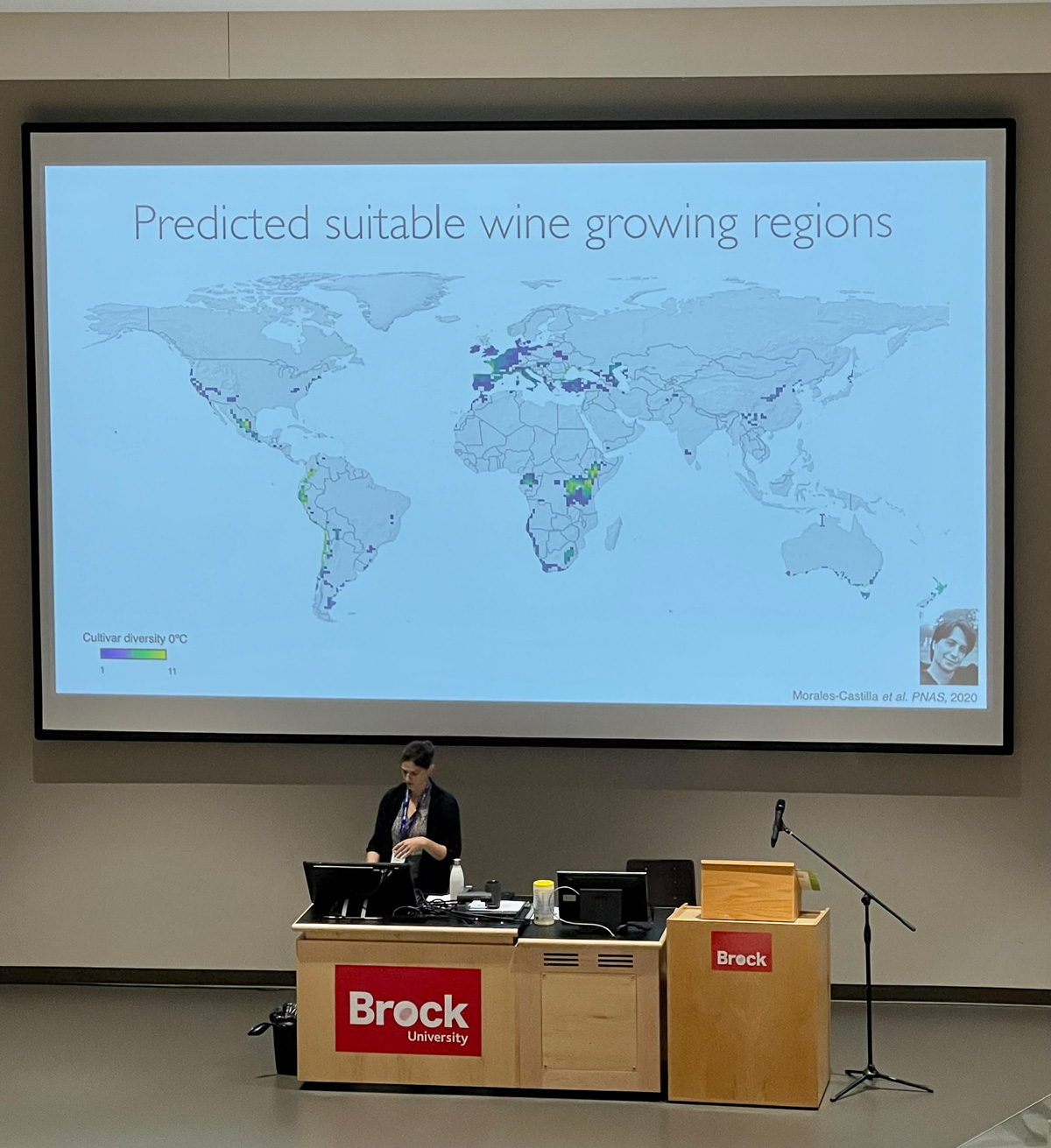
Wine Culture Magazine

The ICCWS conference highlights vital issues facing the wine industry – including climate change. Christine Campbell photo
In 1984, when the International Cool Climate Wine Symposium was first established, few people in the global wine industry saw the benefit of holding a “cool climate” wine conference. But as the world swelters under record-breaking temperatures and wine regions are ravaged by fires, floods and untimely frosts, climate—cool or otherwise—is on everyone’s minds.
That was certainly true July 17 to 21, when the Cool Climate Oenology and Viticulture Institute at Brock University in St. Catherines, ON, hosted the 10th ICCWS. What has become one of the world’s most prestigious wine conferences (normally) runs every four years; this year’s program, in which Canada won hosting rights for the first time over Chile, Australia and New Zealand, was postponed from 2020 due to the pandemic.
The five-day conference highlights vital issues facing the wine industry and is delivered by the world’s foremost wine industry experts. With record-breaking temperatures in the headlines, the importance of this international event is evident. In her opening address, Debbie Inglis, the chair of ICCWS’s organizing committee and director of Brock’s Cool Climate Oenology and Viticulture Institute at Brock University, reminded delegates that not so long ago many believed that New Zealand was “too cool to ripen Pinot Noir,” and that there was little need to discuss cool climate regions at all.

There is compelling evidence that the traditional grape varieties planted and feasible wine-growing regions will need to change. Christine Campbell photo
But mostly what delegates discussed was a warming climate. Climate change was the focal point of the entire symposium, with seminars that covered issues facing viticulture, oenology, the business of wine and lessons on how to communicate science to the general public.
The keynote speaker on the topic was wine royalty Miguel Torres, who Zoomed in from Chile to highlight the wine sector’s growing eco-anxiety due to soaring growing degree days and increasing incidences of natural disasters affecting all the world’s wine regions.
For instance, earlier harvest dates are now the norm due to the effects of climate change. “Western Europe has increased dramatically in temperature, rising 15 per cent hotter than it was pre-1980,” said Dr. Elizabeth Wolkovich, an associate professor in the University of British Columbia’s Faculty of Forestry. Wineries and growers need to adapt, and there is compelling mounting evidence that the traditional grape varieties planted and feasible wine-growing regions will need to change.
Ultimately, the ICCWS presentations tackled the tricky, sobering question, “Are we underestimating the seriousness of our environmental situation?” With an expected global temperature surge between 1.5°C and 2°C by 2050, all sectors of the wine industry must pay attention.
There are four years until we find out the next steps and solutions in cool climate wine’s evolution in New Zealand 2026.

Christine Campbell is a Vancouver-based freelance and travel writer, educator and host of the Wine Soundtrack Canada podcast. She is WSET certified and is a French Wine Scholar. Follow Christine’s adventures in wine and abroad at girlsgogrape.com and on Instagram at @girlsgograpedotcom.

Christine Campbell is a Vancouver-based freelance and travel writer, educator and host of the Wine Soundtrack Canada podcast. She is WSET certified and is a French Wine Scholar. Follow Christine’s adventures in wine and abroad at girlsgogrape.com and on Instagram at @girlsgograpedotcom.
Copyright © 2025 - All Rights Reserved Vitis Magazine